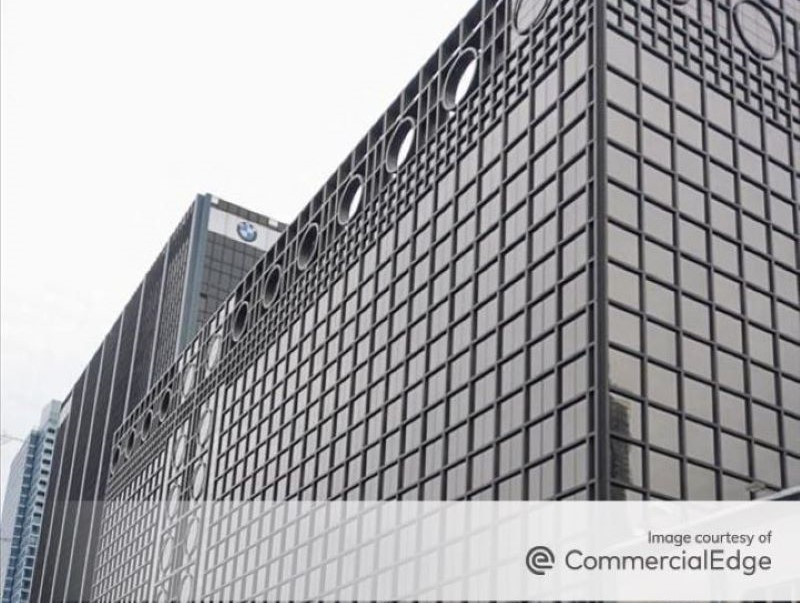WeWork Merger Highlights Real Estate SPAC Surge
The flexible office giant aims to go public using an increasingly popular maneuver in the property and proptech industry.
WeWork’s second stab at going public highlights the growing popularity of special purpose acquisition vehicles in the real estate industry. Not long after the flexible office giant revealed plans to merge with BowX Acquisition Corp, in a deal that values WeWork at about $9 billion, Bloomberg reported that property technology startup Knock is also eyeing a plan to go public, with a SPAC merger as one option under consideration.
Proptech firms are the among the most popular targets for a burgeoning array of SPACs, also known as “blank check” companies—public entities that are formed to buy existing firms and take them public. Although SPACs date back to the 1990s, they have raised huge amounts of capital over the past year. SPAC IPOs have attracted $96.7 billion in 2021 to date, up from $83.3 billion in all of last year and $13.6 billion in 2019, according to SPAC Insider.
READ ALSO: Willy Walker on SPAC Fever in CRE
Real estate heavyweights such as Tishman Speyer, Simon Property Group, RXR Realty and Cushman & Wakefield have joined the SPAC trend by launching their own blank check firms, while a string of proptech startups including keyless-entry firm Latch have used SPAC transactions to go public.
“You’re seeing a lot of proptech SPACs created by real estate people. You’re also seeing general SPACs buying proptech companies,” said Zach Aarons, co-founder and general partner at proptech-focused venture capital firm MetaProp.
Aarons noted to Commercial Property Executive that SPACs provide a way for global brands like WeWork to appeal directly to hungry retail investors. “They’re going to be less focused on traditional valuation methods, and more focused on: I want that stock,” he said.
Slimming down
WeWork said in a statement that the merger agreement with BowX, a SPAC formed by management of venture capital fund Bow Capital, would result in WeWork becoming a publicly listed company with an initial enterprise value of around $9 billion. The deal will also provide the flexible space firm with some $1.3 billion of cash to fund its growth.
BowX will fund the transaction with $483 million in cash, along with a fully committed $800 million private placement investment at $10 per share, led by a roster of big investors, including Insight Partners, Starwood Capital Group funds, Fidelity Management & Research Co. LLC, Centaurus Capital, and funds and accounts managed by BlackRock. WeWork’s biggest backer, Japan’s SoftBank Group, will provide $550 million in senior secured notes.
Manhattan-based WeWork has focused on streamlining its operations and pursuing profitability after its plans for an IPO collapsed in late 2019. Sandeep Mathrani, a seasoned commercial real estate executive who took over as CEO in February 2020, embarked on an aggressive campaign to close underperforming locations and renegotiate leases. As a result, the company trimmed its future lease payments by an estimated $4 billion, while also slashing headcount by 67 percent from its peak in September 2019.
WeWork, which currently manages 859 office locations across 152 cities worldwide, said it has proven resilient through the COVID-19 crisis. The company reported 2020 revenue, excluding China, of $3.2 billion—the same as in 2019. On the other hand, WeWork reportedly lost $3.2 billion last year, according to an account by Reuters last week, citing a presentation shown to prospective investors.
Vivek Ranadivé, chairman and co-CEO of BowX Acquisition Corp., said in a statement that WeWork was primed to become profitable in the “short-term,” but added that BowX was attracted to the long-term opportunity for the firm’s growth and innovation.
Joining the craze
WeWork’s announcement comes amid a flurry of SPAC deals in the real estate sector. On Monday, Bloomberg reported that Knock had hired Goldman Sachs Group Inc. to advise the New York-based home selling platform on a bid to go public. The company is eyeing a plan to raise $400 million to $500 million through an IPO, according to the report, and is also considering a merger with a SPAC or a direct listing.
Earlier this month, brokerage Cushman & Wakefield’s real estate-focused SPAC, C&W Acquisition, filed with the SEC to raise up to $250 million in an IPO. Property owners and developers have also joined in the SPAC enthusiasm. Simon Property Group Acquisition, a SPAC formed by America’s biggest mall owner, raised $300 million last month.
That came after RXR Acquisition, a proptech SPAC formed by RXR Realty, filed with the SEC to raise up to $250 million. Tishman Speyer announced its second SPAC in January, targeting real estate and proptech, after its first SPAC took Latch public at the start of the year.
Proptech firms that have tapped the SPAC trend include online homes marketplace Opendoor Labs Inc., which merged with a blank check company last December, landing on the Nasdaq as Opendoor Technologies Inc. And last month, Matterport, which makes software for virtual property tours, announced it would merge with a SPAC to go public in a deal valuing the startup at $2.3 billion.








You must be logged in to post a comment.